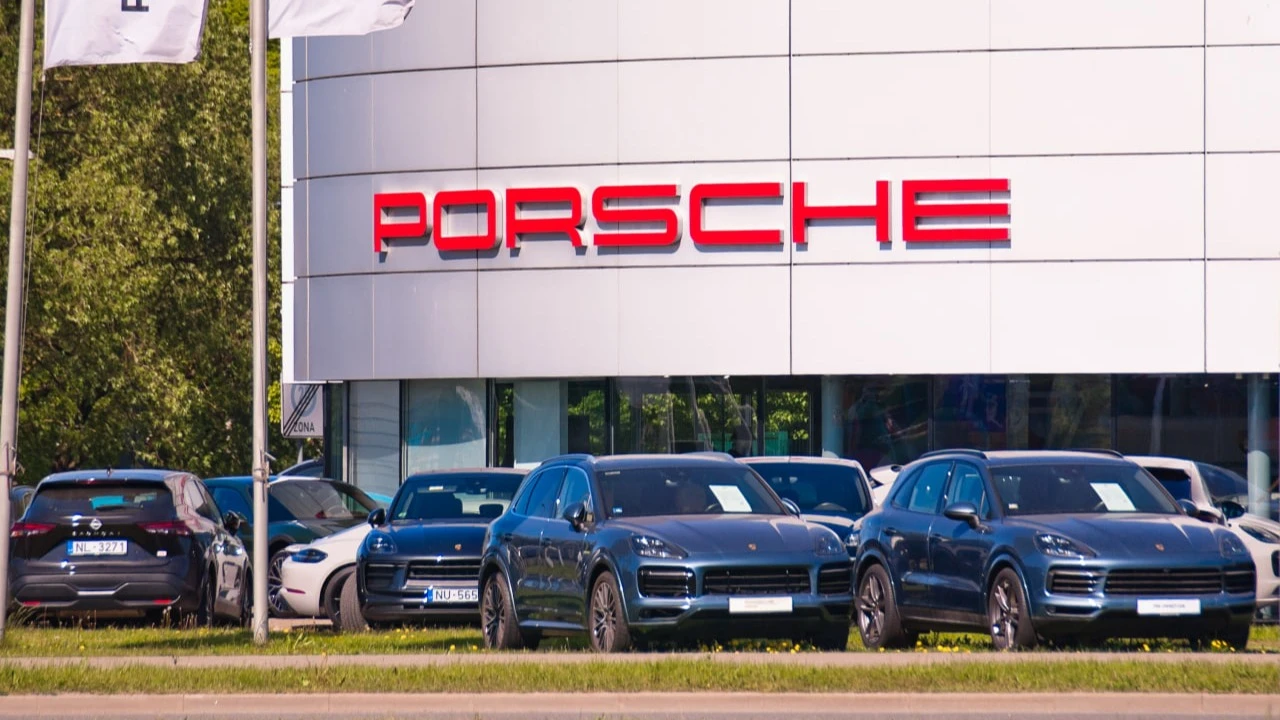German car industry in 'perfect storm': Porsche also reported a sales slump in China
The automobile business is under pressure from weak demand, trade conflicts and growing competition from Chinese players

Sports car maker Porsche has reported a sharp drop in sales in China this year - due to weakening demand in the premium segment and increased competition from local manufacturers. It is another German car brand that is experiencing a downturn in interest in its largest market. The situation in the industry is reminiscent of the "Nokia moment," when once-leading companies lose ground, Bloomberg said.
Details
Porsche - following BMW and Mercedes-Benz - reported a decline in sales in China, the world's largest automobile market. The company delivered 32,195 cars there in the first nine months of 2025 - 26% less than in the same period last year. It attributed the drop to the difficult situation in the premium segment and increased competition from local brands such as BYD and Xiaomi, which are attracting buyers with more affordable electric cars.
Just the day before, on October 8, BMW sharply cut its profit forecast after demand in China came in below expectations.
Porsche shares fell 1.8% in trading in Germany on October 9, having lost more than 28% of their value since the beginning of the year.
What's going on
Germany's auto industry is going deeper into recession: to difficulties in China are added rising costs due to U.S. duties and sluggish sales dynamics in Europe, which increases the pressure on business in all three key markets, Bloomberg writes. Despite billions of dollars of investment in battery technology, the first wave of electric cars did not arouse the interest of buyers, and new models will appear only next year, the agency notes.
All this is forcing carmakers to reduce production, curtail expensive EV programs and cut tens of thousands of jobs. The largest concern Volkswagen, which operates more than 100 plants around the world, is cutting car output and staff, Ford is limiting production in German divisions, German auto component manufacturers Continental, Schaeffler and ZF Friedrichshafen are also resorting to optimization, Bloomberg lists. The German government has announced a new €3 billion support package for electric cars, but the concerns complain about excessive regulation and high energy and other costs.
"The German industrial sector, especially the car industry, is caught in a perfect storm. Its share in the PRC is falling sharply, the excess capacity of Chinese production is undermining German exports on all fronts, and the US market can no longer compensate for the losses as it was in 2024," economist and advisor to the country's finance minister Jens Zuydekum told the agency.
The situation raises fears that the auto industry is having a "Nokia moment", when once-dominant companies are rapidly losing ground, Bloomberg notes. According to Germany's statistics office, the country's industrial production in August fell by the most since the beginning of 2022, mainly due to an 18.5% drop in car output.
What analysts think of Porsche
Analysts at AlphaValue/Baader Europe this week reiterated their recommendation to sell Porsche shares and in addition lowered their target price to €40. The new benchmark implies a 6% drop in quotations relative to the last closing. According to analysts, structural problems such as the changing preferences of Chinese buyers in favor of cheaper local brands and the 15 percent duty of the United States, where Porsche does not have its own production facilities, "are likely to persist".
At the same time, the consensus view on the company is rather neutral. Of the 19 analysts who track its securities, the majority - 11 - advise to keep them in the portfolio, follows from the data of MarketScreener. Four recommend buying and the same number recommend selling.
This article was AI-translated and verified by a human editor
